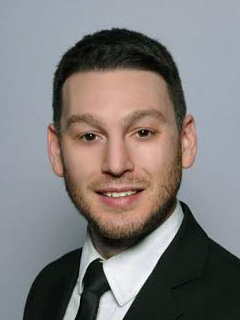2012 New Century Scholars Doctoral Scholarship, 2015 Research Travel Grant
A New Performance

Aaron Ziegler, formerly a tenor from Ohio, is now a voice scientist in Oregon. Obviously, there have been a few significant stops on the way from here to there. But there—that is, on the faculty of Oregon Health & Science University—is finally where he’s set up intellectual stakes and where he’s sure he wants to be.
So this is Ziegler’s story: After receiving his undergraduate degree in theater performance from the University of Michigan he made his way to New York City to pursue a career in musical theater. While there, some friends from Hong Kong convinced him to come for a short visit that turned into a two-year stay teaching singing and acting. “I had one student with a voice disorder,” Ziegler relates. “I was perplexed by him. At that point, I had only a general idea of the anatomy and physiology of the voice and my experience with this student made me want to know more.” So Ziegler headed home to pursue a master’s degree in speech-language pathology at Northwestern University. Then, still with a lot of unanswered questions, he began doctoral study with Katherine Verdolini Abbott at the University of Pittsburgh. His next step was a faculty position at Oregon Health & Science University, where he is today, looking for answers to yet more questions.
In 2012, Ziegler was awarded a “very helpful” ASHFoundation New Century Scholars Doctoral Scholarship allowing him to carry out his dissertation research that looked at “the tradeoff of respiration and phonation when individuals are imposed with higher respiratory demands.” He had people walk on a treadmill at two different exercise workloads and, while walking, do a short voice task at two loudness levels. “I wanted to see, in terms of motor control,” he explains, “what was the give and take with a normal system as it is being stressed both with respiration for life and respiration for voice.”
The study showed that “People do different things with their larynx depending on their respiratory and voice goals. They can choose to prioritize one goal over the other depending on the demands a situation requires.” Eventually, Ziegler plans to investigate differences in people with trained versus untrained respiratory systems, including voice training, to understand how each group might respond faced with a similar situation.
What next? The ASHFoundation awarded Ziegler a Research Travel Grant in 2015 that allowed him to attend Lessons for Success. The grant-writing lessons he learned there led to his receiving an Early Clinical Investigator grant from the Medical Research Foundation of Oregon and a research grant from the Voice Foundation to carry his work to the next level. The study participants now will be engaging in a longer reading task. “The longer they read, what starts to change in voice and breathing?,” Ziegler asks. “Does the voice become more breathy, more degraded? Do participants feel shortness of breath? What happens, as the task is more ecologically valid in terms of timing and real speech as opposed to a task that was basically just syllables in my dissertation? Finally, if we have a better understanding of the motor control of the system and how the system reacts it could change how we treat patients.“
Ziegler is also involved in another line of research that looks at the aging voice and aging respiratory system. “Right now we focus heavily on laryngeal behavior but we don’t spend a lot of time strengthening or conditioning the respiratory system, which in the aging population is less conditioned, less strong, and less capable of what it was when it was younger.” Maybe we need to spend more time targeting the respiratory system in therapy for the aging voice,” Ziegler believes. “It’s time to consider how best to do that.”
So far in his career, says Ziegler, “The ASHFoundation has been pivotal in allowing me to be successful. It has provided not just financial resources but also intellectual resources and emotional support. I’ve learned a lot as a result of the opportunities that the ASHFoundation funding has opened for me so far and I’m planning to apply for an ASHFoundation research grant in the future.”
View More Recipient Spotlights